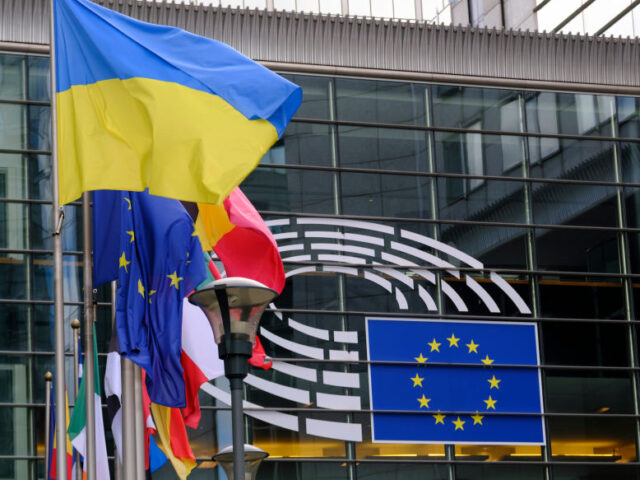The European Union should be bolder about the onboarding process for new member states to head off attempts by the Russian state to undermine pro-European sentiment in those nations, Brussels diplomats have said, a report claims.
Talking about European accession for potential member states but then not acting on it presents Russia with a motive and opportunity to sow division in those states intended to pull them towards Moscow’s orbit, two European diplomats have said in remarks reported by Politico. France’s Europe minister Laurence Boone said disinformation and interference was a real issue in what are called candidate countries, which she believes Russian President Vladimir Putin deliberately encourages to “weaken the European Union”.
This is something the Union should “fight against”, she said, remarking “the most important thing is to send a steady message on these countries’ place in the EU”. By giving candidate nations a clearer position, the Union could use the expansion process to support neighbours rather than invite Putin to undermine them, she said.
There are nine nations which are either candidates or applicants for European Union membership of varying degrees of advancement in the process. All have former history as Soviet-aligned nations in the 20th century, some as outright Soviet Socialist Republics like Ukraine and others as new nations born out of the former Socialist Federal Republic of Yugoslavia.
Even faraway Georgia, a Caucasus region nation on the far side of the Black Sea and whose capital is closer to Kabul than Berlin is an on-again-off-again prospective EU member state, has been under intensified Russian threat of late. Russia already militarily occupies two Georgian regions, South Ossetia and Abkhazia which it claims are ‘breakaway’ regions it has spoken of absorbing into the greater Russian state, as it has already professed to do in Donetsk, Ukraine.
What Sanctions! Europe Importing Record Levels of LNG Gas From Russia https://t.co/VBzLFPqIEb
— Breitbart London (@BreitbartLondon) August 31, 2023
It is the vague approach to new members that the European Union can take which gives Putin the opportunity to sow division, it was said, as the limbo status which can last many years can breed resentment and is a source of uncertainty.
One unnamed diplomat was quoted as remarking Moscow deliberately undermined nations it sees as a rightful part of its own sphere of influence from joining the Union, citing Moldova as a key example. “By opening a second tier, we are inviting Putin to pressure these countries”, he is reported to have said.
The conviction that the best way to confront Russia is by making the European Union larger and stronger is not a novel concept. Indeed, Boone’s remarks echo others she has made, including in an op-ed for London’s Financial Times last year when she said Russia invading Ukraine was actually “accelerating [the EU’s] evolution into a fully-fledged sovereign political power”, comparing the war to the Covid pandemic which gave the bloc the pretext to consolidate its own power.
She wrote: “The EU must become an anchor of stability for the European continent as a whole. There can be no half-measures in the midst of the hybrid war being waged by Russia: its imperialist war in Ukraine and its use of energy and food as weapons to destabilise the whole world.
“It is within this context that we ought to understand the historic step of granting candidate status to Ukraine and Moldova, recognising the European perspective in Georgia, as well as the opening of accession negotiations with North Macedonia and Albania. The EU must anchor the Western Balkans in the European family, to which they belong geographically, historically and culturally.”
Speaking earlier this year, European Commission President Ursula von der Leyen hit similar notes in a speech in Spain, remarking Ukraine and Moldova need to be brought into the Union to prevent them coming under the influence of Russia or China.

COMMENTS
Please let us know if you're having issues with commenting.